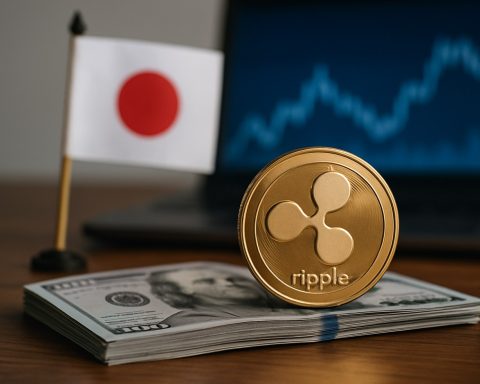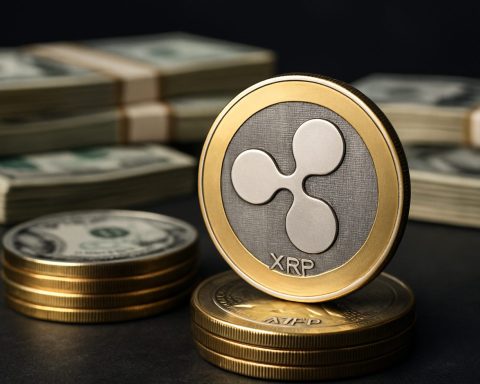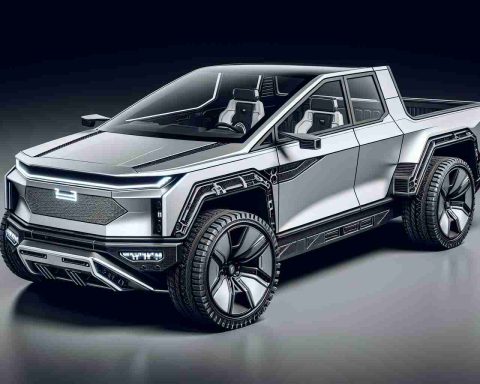- Tesla’s stock is recovering after a significant decline, its steepest since 2020.
- UBS analysts have lowered Tesla’s price target, reflecting a more cautious perspective.
- Morgan Stanley suggests this dip could be a strategic buying opportunity for investors.
- Former President Trump publicly supports Tesla, adding complexity to its market narrative.
- In Europe, Tesla faces increased competition and regulatory challenges driven by local EV advancements.
- China poses challenges for Tesla with its competitive domestic firms and evolving policies.
- Tesla continues to pursue innovation with projects like Gigafactories and autonomous driving technologies.
- The situation highlights Tesla’s resilience and vision as key strengths in overcoming market challenges.
Tesla, the electric vehicle titan, is gripping the attention of investors worldwide as its stock begins to bounce back from a brutal nosedive earlier this week—its steepest decline since 2020. The tumultuous start to the week saw shares plummet, eradicating gains accumulated in the once-buoyant post-election period.
In a dramatic shift, UBS analysts have cautiously adjusted their price target for Tesla, reflecting a more tempered outlook on the EV phenomenon. Meanwhile, financial juggernaut Morgan Stanley has raised a strategic flag: the pullback might just be an opportunity for astute investors to “buy the dip.” As analysts and experts dissect Tesla’s trajectory, it’s clear the stakes are rising—and fast.
Adding a twist to the financial narrative is the public nod of approval from former President Donald Trump, whose vocal support for Tesla carves yet another dimension into the already complex landscape. This endorsement comes at a time when consumer behavior stands at a critical juncture. The allure of sustainability and innovation, once Tesla’s unmistakable appeal, now faces heightened scrutiny as global markets evolve.
Amidst this storm of market maneuvers and political endorsements, Tesla finds itself at a crossroads, particularly in Europe and China. In Europe, burgeoning local competitors coupled with environmentally-driven regulations are rapidly transforming the EV battlefield. China, the world’s largest automotive market, presents its own set of challenges; fierce competition from domestic firms and shifting policy dynamics continue to test Tesla’s mettle in maintaining its foothold.
Yet, despite these hurdles, Tesla remains a beacon of disruptive innovation. It deftly balances on the edge of technological advancement with projects that promise to reshape the future of transportation. From the ambitious scaling of Gigafactories aiming to saturate and dominate, to the cutting-edge development of autonomous driving capabilities, Tesla’s roadmap teems with aspirations that dwarf ordinary market ambitions.
As the dust begins to settle after this week’s financial tempest, Tesla’s journey underscores a perennial truth in the world of investment and innovation: resilience, coupled with vision, can turn even the sharpest of market declines into a stepping stone. For investors and consumers alike, the message is as electric as the vehicles Tesla champions—adaptation and foresight pave the golden road ahead.
Is Now the Time to Buy Tesla Stock? Expert Opinions and Future Predictions
The Current State of Tesla: A Financial Overview
Tesla, the pioneering force in the electric vehicle (EV) market, has recently captured headlines due to its volatile stock performance. After enduring its steepest decline since 2020, Tesla’s stock is showing signs of recovery. This turbulence has sparked varied responses from financial analysts and market pundits.
UBS and Morgan Stanley Insights:
UBS analysts have taken a conservative approach, revising their price target for Tesla amid market uncertainties. On the other hand, Morgan Stanley suggests the recent dip might present a lucrative opportunity for investors to “buy the dip,” indicating faith in Tesla’s long-term potential despite short-term fluctuations.
Political Influences:
Former President Donald Trump’s endorsement of Tesla has added a new layer to the narrative. This support highlights the intersection of politics and sustainable innovation, potentially influencing consumer perceptions and investor confidence.
Key Challenges Facing Tesla: International Market Dynamics
Europe:
Tesla encounters increasing competition from local EV manufacturers and stricter environmental regulations. Companies like Volkswagen and mainstream automakers are investing heavily in electric, hybrid, and sustainable vehicles, posing a threat to Tesla’s market share in Europe.
China:
As the largest automotive market, China presents both opportunities and challenges. Tesla competes with domestic giants such as BYD and NIO, which benefit from favorable government policies and robust local supply chains. Adjustments to policies, including subsidies for EVs, can significantly impact Tesla’s foothold in the region.
Tesla’s Vision: Innovations and Future Outlook
Gigafactories and Innovation:
Tesla’s strategy to build and expand Gigafactories globally supports its ambition to lead in sustainable manufacturing and production scale. These factories aim to lower production costs and improve battery technology, bolstering Tesla’s competitive edge.
Autonomous Driving:
Tesla continues to innovate with its Autopilot technology, striving to become a leader in autonomous vehicles. The company invests heavily in research and development to perfect self-driving features, which could revolutionize transportation.
Market Forecasts and Trends
Investor Expectations:
Despite market fluctuations, many investors remain optimistic about Tesla’s long-term growth. The company is expected to maintain its leadership in innovation, especially with plans for new vehicle models and energy products.
EV Market Trends:
The global push towards sustainable energy and transportation is expected to benefit Tesla. The EV market is projected to grow significantly, driven by technological advancements, regulatory support, and changing consumer preferences towards eco-friendly vehicles.
Pros and Cons Overview
Pros:
– Innovation Leader: Known for cutting-edge technology and product design.
– Strong Brand Loyalty: Tesla has a dedicated customer base and strong brand recognition.
– Sustainability Focus: Well-positioned in the growing market for clean energy solutions.
Cons:
– Market Volatility: Subject to significant stock price fluctuations.
– Regulatory Challenges: Facing stringent regulations in key markets.
– Competition: Growing competition from established and emerging automakers in the EV space.
Actionable Recommendations for Investors
1. Evaluate Long-Term Potential: Consider Tesla’s innovation trajectory and strategic initiatives.
2. Diversify Portfolio: Balance investments in Tesla with other emerging technologies and sectors.
3. Stay Informed: Monitor market trends, regulatory changes, and Tesla’s quarterly performance updates.
To explore more about Tesla’s innovations and market strategies, visit the official Tesla website.
Conclusion
Tesla remains a formidable player in the EV landscape, exemplifying resilience and visionary leadership. For potential investors, the message is clear: understanding the company’s challenges and strategic plans can transform current market uncertainties into future gains. Adaptation and foresight will be the keys to navigating the ever-evolving automotive market.













